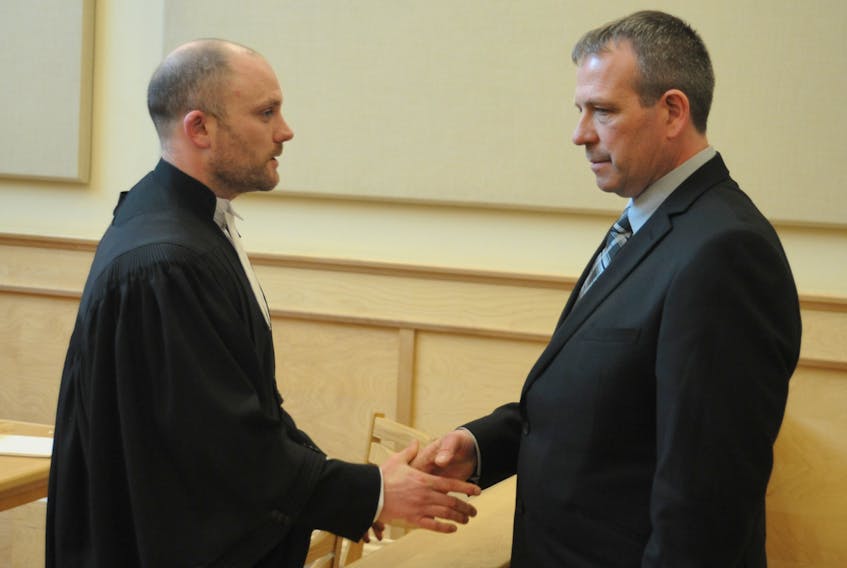Walter Alfred Joyce will find out Monday if crucial evidence can be used to prosecute him on impaired driving causing death charges.
Joyce, 46, was charged after his sister-in law, Marilyn Sheppard, and her husband, Merle Sheppard, were killed in Lark Harbour on Boxing Day 2016.
Joyce was allegedly impaired while driving the pickup truck that struck the couple as they walked on Little Port Road in a snowstorm in the early morning hours of Dec. 26, 2016.
Related stories:
Joyce elects Supreme Court trial by judge and jury in deaths of two Lark Harbour relatives
Lark Harbour still reeling after Christmas tragedy
Man charged with impaired driving causing death in Lark Harbour to be released
There are four charges against him, including two counts each of impaired operation of a vehicle causing death by exceeding 80 milligrams and impaired operation of a vehicle causing death.
He is set to go to trial April 16, but Justice Brian Furey must first decide whether Joyce’s charter rights were violated by the police on the night of the accident.
For the last two days, defence lawyer Robby Ash has presented the case that suggests the RCMP arbitrarily detained Joyce and conducted an unlawful search and seizure that night. If the judge agrees with Ash, the main evidence that supports the charges may be ruled inadmissible at trial.
Ash’s argument hinges on evidence given during the pre-trial application hearing that the police had already made up their mind to arrest Joyce before they even spoke with him at the scene. Furey heard evidence that a paramedic who had arrived at the scene prior to the RCMP’s arrival told the officers that Joyce had already admitted to having drank alcohol prior to driving that night.
Ash said the information conveyed by the paramedic did not constitute reasonable and probable grounds for an arrest or seeking breath samples from Joyce. He contended the police did not conduct a proper investigation into the incident before making the arrest, and the lack of investigation was an abject failure to perform a police officer’s most basic duty.
Ash’s argument also noted there were no signs of erratic driving, highlighting the fact the truck was stopped in the proper lane it was supposed to be in after the collision and there was no evidence or eyewitness accounts of swerving, skidding or excessive speed.
Ash acknowledged the charges are serious and that society wants them adjudicated on their merit, but noted the seriousness of the charges is all the more reason to also ensure Joyce’s rights are protected.
Crown prosecutor Adam Sparkes said to conclude the officers involved failed to comply with their duty in this case would require a major jump from the facts. He said the officers were justified to have reasonable and probable grounds to arrest Joyce for alleged impaired driving.
Sparkes said the fact the arresting officer has never been sanctioned by his superiors for not conducting a proper investigation in this matter as an indication he did his job correctly that night.
As for the defence’s contention that there was no irregular driving, Sparkes said failing to see or avoid two significant objects, namely two people, in the middle of the road, possibly shows a significant cognitive impairment and lack of motor skills that can be considered extremely erratic driving, and this was part of the total picture the police had to consider.
Furey told the Crown and defence he would have a decision on the application Monday, one week before the case is set to go to trial.









